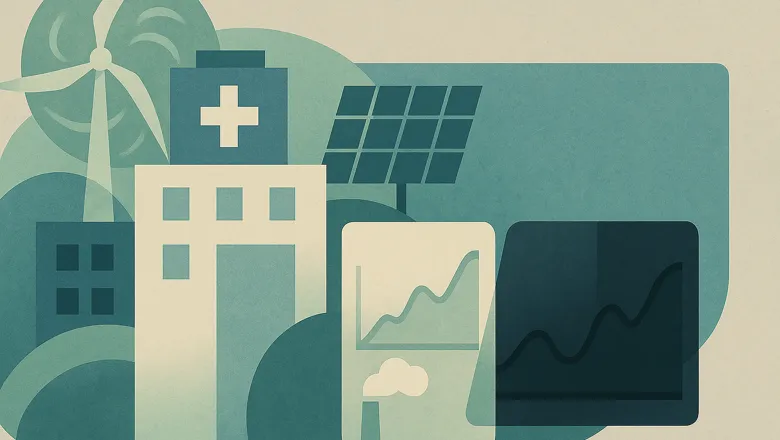Environmental knowledge in healthcare isn’t neutral. It’s constructed through political, institutional, and technical choices that determine what gets counted - and what gets left out.
Dr Gabrielle Samuel, Department of Global Health and Social Medicine
02 July 2025
Is Healthcare's Green Push Missing the Bigger Picture? New Study Says Yes
Researchers warn a narrow focus on carbon emissions may obscure deeper environmental and social harms

As hospitals and health researchers around the world pledge to go green, a new study is raising a red flag: are we focusing too much on carbon and missing the deeper issues?
The paper argues that the health sector’s environmental efforts may be built on narrow definitions of sustainability that ignore broader environmental and social harms.
Lead author Dr Gabrielle Samuel from the Department of Health and Social Medicine at King’s says that what gets measured - like carbon emissions - is often determined by what’s easiest to quantify, not what’s most important. And that can lead to blind spots.
Net Zero is one such example. The NHS is increasingly using NetZero as a framing to make decisions, but these decisions ignore other environmental damage, says Dr Samuel - even though those impacts are rarely part of the conversation.
The authors say this is a good example of the concept of “environmentality” - a way of understanding how environmental knowledge is shaped by power.
Another example involves common pressurised inhalers used for conditions such as asthma or COPD, and which account for something like 3% of NHS carbon emissions. The NHS is encouraging patients to switch to dry-powder inhalers, which have a lower carbon footprint.
This framing evokes the idea that patients who change inhalers are “good citizens” according to Dr Samuel. But she says, asking patients to take on more responsibility for reducing emissions can be problematic.
“We’re seeing a shift where individuals are expected to self-regulate based on environmental data. But that data is shaped by political and technical choices.”
Rather than rejecting efforts to green the health sector, the researchers are calling for a broader, more inclusive approach - one that considers not just carbon, but also the importance of the full life cycle of medical products, lived experience, and justice, as well as the need for broader structural and systems changes.
As the world’s healthcare systems face growing pressure to cut emissions, this study offers a timely reminder, says Dr Samuel.
“Sustainability isn’t just about numbers - it’s also about values, voices, and who gets to decide what counts.”
This paper was published in Humanities and Social Science Communication and was co-authored by Dr Stephen Roberts from UCL.
Read the full paper:
Samuel, G., Roberts, S. Addressing environmental harms in the health sector: environmentality as a lens to expose (neglected) sites of knowledge/power. Humanit Soc Sci Commun 12, 963 (2025).

